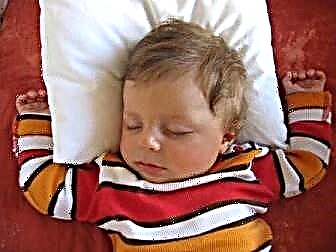
Diarrhea is an unpleasant condition that happens to everyone from time to time. But there are adults and children who suffer from diarrhea quite often. About 1.5 million children under the age of 5 worldwide die each year from dehydration caused by frequent loose stools. Chronic diarrhea (on an ongoing basis), according to statistics, affects up to 14% of adults. Quite often, a psychological or psychogenic factor plays a role in the occurrence of diarrhea. We will discuss the psychosomatic causes of diarrhea in this article.

About pathology
A more ancient disorder than diarrhea is difficult to find. It was described by the doctors of Ancient Rome and Greece, there are references to it in the historical sources of the Middle Ages. It is not considered an independent disease, but it is recognized as a rather expressive symptom of various diseases: both infectious and non-infectious.
Modern doctors are sure that diarrhea can be dangerous, but not in itself, as a phenomenon, but in connection with the consequences - it leads to rapid dehydration of the human body. Children are most likely to develop dehydration. Acute diarrhea is the body's reaction to bacteria, viruses, enzyme deficiency, stress, provided that the urge to empty the bowel occurs 3 times a day. If loose stools persist for more than two weeks, they speak of prolonged diarrhea, and if about a month - about chronic. Diarrhea often accompanies mental disorders, including post-stress and anxiety personality disorders.
Diarrhea is always associated with a malfunction of the digestive system, which leads to liquefaction of feces and an increase in the urge to defecate. The reason can be both disruptions in the functioning of individual organs, for example, gallbladder disease, and infectious agents - bacteria and viruses, hormonal disorders, disorders of the nervous system, in which the brain sends incorrect, distorted signals to the intestinal receptors.
Diarrhea is considered psychosomatic and is not caused by organ disease or infection. That is, psychosomatics examines the influence of the nervous and mental factors on the work of the intestines.

Psychosomatic causes
To understand how and why a person can create an intestinal disorder for himself, one should know that the intestine in psychosomatic medicine means the ability to receive and digest information from the outside. And it's not just about food, food. It is about a person's ability to accept new things, adequately assess, digest and release. This is normal digestion.
Diarrhea is always associated with stress, due to which the work of the nervous system and the brain is disrupted. Under the influence of incorrect nerve signals, the intestinal walls begin to contract out of time, which leads to frequent bowel movements. A person does not digest, does not assimilate something from the information received from outside, and his body “signals” him about it with frequent liquid stools.
Psychosomatic diarrhea in a child usually lasts no more than two days, in adults - within three days. Once the situation that caused the indigestion is resolved, the diarrhea stops. In some cases, when the situation is not resolved, diarrhea can become chronic.

The psychological profile of an adult suffering from regular diarrhea and vomiting or from chronic diarrhea is quite simple: a person is fixated on his own attitudes and ideas about life and does not perceive the new that comes to him. For example, an elderly woman refuses to pay for utilities via the Internet, believing that it would be better to stand in a huge queue at the post office. The more often she is faced with hints from loved ones that there are more modern payment methods that do not require standing in lines, the more severe diarrhea the pensioner develops.
Unwillingness to get rid of emotional "garbage" which has accumulated (experiences, past affairs) also leads to the development of idiopathic and prolonged diarrhea. Often stubborn, arrogant, people who deny any opinion other than their own suffer from diarrhea.
Any event, any information, according to psychosomatics, comes to us for a reason, but solely for our own good. If a person rejects what life sends him, does not even risk trying to change his behavior and thinking patterns, then diarrhea can become his frequent companion.

In children
Children's diarrhea is often triggered by fears of change. Any drastic changes in the life of the family - moving, starting to attend a kindergarten or school, divorce of parents, departure of one of the parents - for the child pose a direct threat to his calm habitual existence. Leaving their comfort zone, children quickly begin to experience fear, which quickly leads to the development of diarrhea. Please note that children who find themselves in the center of such important events for the family usually begin to complain of abdominal pain and diarrhea within 24 hours.
Diarrhea in infants can be caused by an increase in adrenaline in the mother's body if the baby is breastfed. Mom is stressed, the hormone partially penetrates into the milk, causing anxiety and fear in the baby, as well as the rapid development of diarrhea. Mom is at a loss - she did not give the baby anything new to eat, but he has diarrhea. The reason must be sought in your own emotions. Infants who are bottle-fed catch alarming situations in their familiar environment on an intuitive level and react to them with loose stools.

After 3 years, diarrhea can become personalized. So, a child who has no contact with the teacher in the kindergarten begins to "not digest" this person on an emotional level, which leads to regularly recurring loose stools. Often, problems with the intestines and defecation are experienced by children who cannot find a common language with their stepfather or stepmother, fear them.
Diarrhea in adolescents it is sometimes associated not only with the imposed by society of the need to constantly accept new things (that is, to learn), but also with the inability to weed out high-quality information from low-quality information. They consume it all, indiscriminately, in large quantities. And this is what often becomes the cause of chronic or prolonged diarrhea.
Often in schoolchildren and adolescents, diarrhea begins due to an overabundance of information "food" before control, exams. Strong lack of confidence in one's abilities can lead not only to loose stools - dysbiosis can also occur.

Influence of speech habits
With regard to diarrhea, psychoanalysts often consider the influence of destructive word forms. A word is no less powerful than a thought or emotion. It has been noticed that adults and adolescents who often use swear words and harsh words in their speech are more likely to suffer from stool disorders. If such verbal expressions are not eliminated from speech, hemorrhoids may develop (and medical statistics fully confirm the connection between frequent diarrhea and varicose hemorrhoidal veins). The most difficult consequence for the scolding may be the development of tumors in the rectal area.
Researchers' opinion and treatment
She paid a lot of attention to the psychology of intestinal diseases Louise Hay. She points out in her books and tables of diseases that diarrhea is closely associated with fear, denial and attempts to escape from events. Canadian writer and psychologist Liz Burbo states that diarrhea is likely in those who reject new events and ideas, and with them the joy and beauty of life. Such people stop feeling happy, grateful, and expressing appreciation to others.
Bodo Baginski writes that at the heart of diarrhea are always problems with personal, deepest fears of a person. On the one hand, a person wants to free himself from past experiences that cause fear, on the other hand, it is scary to do this. It turns out to be a vicious circle. And each new impression or experience, stress can provoke a new circle of fear and, accordingly, diarrhea.
Psychotherapist Valery Sinelnikov indicates that diarrhea is based on anxiety, a feeling of the unreliability of the world, instability. Each situation is urgent for them, each experience is excessive. The habit of worrying about anything from everyday trifles to global problems of the inhabitants of the Earth leads to persistent intestinal disorder, which is often exacerbated.

Oleg Torsunov indicates that frequent neurogenic diarrhea is characteristic of spiritually unscrupulous people who are indiscriminate in food, choice of partners, friends, contacts, ideas, hobbies.
Curing someone with diarrhea is more difficult than it sounds. Antidiarrheal drugs alone cannot eliminate the true cause, and diarrhea will return. Psychotherapy aimed at a more positive perception of the world around is useful. If a person sees that there are a lot of new and interesting things around, that this is not dangerous at all, but useful for him, then he can once and for all change his life position based on anxiety, fear, rejection.
A new healthy habit will help to get rid of diarrhea - not to “run” from difficulties and problem situations, but to “turn to face them” and resolve issues as they come. It can be difficult for adults to quickly restructure their own reactions to such requirements, but if this succeeds, then the painful frequent diarrhea can be forgotten.
Children's diarrhea needs not only an examination by a pediatrician and timely treatment (to prevent dehydration), but also an analysis of situations that have caused fear and anxiety in the baby. Parents should talk to the baby heart to heart, try to find out what the essence of fear is, and convey to the child that his fears are completely unfounded. A child who feels loved, who feels supported by adults, more easily experiences his fears (by and large normal for the period of growing up). Participation and support is the best diarrhea medicine for a child and teenager.




